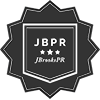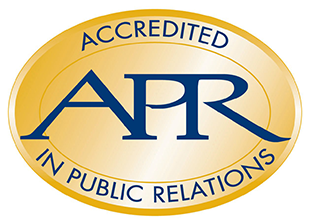I got the letter from the Public Relations Society of America allowing me to take the next steps to earn my Accreditation in Public Relations + Military. I have been approved to go forward with scheduling a Panel Presentation and, once approved by the panel, to take the test.
Why would I voluntarily submit myself for more studying and tests to prove I know public relations? Isn’t nearly 18 years of Military Public Affairs, 15 years of Government Public Affairs, and two years running JBrooksPR enough? It’s because the APR is important not just for myself, but for the career field.
I am proud of my Masters in Public Relations from The George Washington University. It was the first part of my education that I did for myself. When I attempted to go pre-law and did my Associates Degree in Paralegal Studies it was because everyone always told me I’d “grow up” to be a lawyer. I did my Bachelor’s Degree only because I needed it to make Captain in the Army. The Masters was for me. Now I am going after the APR because it is the closest we have to a professional license.
The APR+M is for my career field. The Public Relations career field consists of a lot of “soft skills” that are difficult to quantify and relies on the “soft sciences” to prove effectiveness. These so-called “soft” skills and sciences have lasting, hard effects on our operations in the Military, Government, and even commercial space.
Public Affairs in the military and government are often seen as something that you “sprinkle on top” of tactical and operational missions. Those in the career field understand that Public Affairs and Information Operations are strategic level considerations that drive tactical and operational activities. When planned and executed properly, these “soft skills” amplify and enhance any actions, campaigns, or initiatives that are conducted.
PR professionals trained and certified with the APR(+M) bring the level of professionalism, strategic thinking, social science-based planning, and analysis needed to advance the career field.
Formalizing and elevating my PR practice through certification and continuing professional education, makes me part of the solution to the undervaluation of PR. By registering for the test and giving myself a one-year timeline to complete it, I can no longer say that other projects or career requirements have allowed me to delay.
I am in a position where my example is seen by soldiers, practitioners, and colleagues. I owe it to the career field to do this. I have a lot of work to do to be ready and to keep myself on track and I will be writing about it here.

